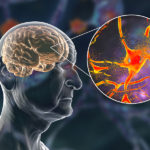By Bonnie Jenkins, Advanced Natural Wellness
Every 71 seconds, someone in America is diagnosed with Alzheimer’s disease. That’s not good news for baby boomers, particularly when 10 million of us born in the 50s and 60s seem to be destined to developing this devastating disease.
But, in the never-ending search for an effective treatment for Alzheimer’s disease, researchers may have found a natural remedy that delays the progression of its destructive symptoms – large doses of vitamin E.
Antioxidant Power
In the two-year multi-center study, about 350 men and women diagnosed with moderately severe Alzheimer’s Disease were randomly given one of four treatments daily: 10 mg. of selegiline (a Parkinson’s disease drug), 2,000 IU of vitamin E, a combination of the two or a placebo.
In addition to looking at how well the brain functioned on each treatment, the study examined quality of life – which ultimately may be more meaningful. The participants were monitored for any decline in their ability to perform activities of daily living, like eating or grooming, and whether their condition deteriorated enough to require nursing-home care.
The researchers found that no treatment improved the participants’ condition. But both vitamin E and selegiline delayed a decline in their abilities by about seven months. Both treatments possess antioxidant properties, which the researchers think may slow damage to brain cells. But vitamin E may have another edge against Alzheimer’s. In an animal study, researchers found that this vitamin regulates certain genes, including a number linked to Alzheimer’s disease.
Open your arteries, improve blood flow for a new health miracle...
Did you know your circulatory system has over 60,000 miles of arteries, veins and other blood vessels, if stretched end to end?
But as you age, your blood vessels undergo changes, which may cause them to stiffen, thicken and get clogged.
GOOD NEWS! Doctors have now identified a “Miracle Molecule” inside your arteries that helps OPEN your arteries and IMPROVE blood flow.
It’s what Dr. Valentin Fuster calls it, "One of the most important discoveries in the history of cardiovascular medicine."To you, that means...
- Healthy blood pressure
- Sharper mind and memory
- Skyrocketing energy and muscular strength
- Increased pleasure and passion in the bedroom
- Improved circulation to every cell and organ in your body
Go here to discover a new natural way to significantly boost the levels of this miracle molecule in YOUR body NOW!
Of course, more studies are needed to confirm these preliminary findings. But if you have a loved one suffering from Alzheimer’s, talk to their doctor about adding vitamin E to their treatment plan. Since the dosage used in this study was considerably higher than the amount normally taken, it’s a good idea to have a health care provider monitor its effect.
Up your E
While the jury’s still out on whether vitamin E can really put the brakes on Alzheimer’s disease, a growing number of studies show that this super antioxidant can help prevent its onset.
One study of 815 seniors, conducted at the Rush Institute for Healthy Aging, found that boosting your intake of foods rich in vitamin E – wheat germ, sunflower seeds, almonds, olives, Swiss chard and papaya – decreased risk of developing Alzheimer’s disease. Another study of more than 5,300 people over the age of 55 found that those who got the most vitamin E and C had a lower risk of Alzheimer’s. And those who were smokers appeared to get even more protection!
What about supplements? An Italian study evaluated a daily dose of 2,000 IU and found a substantial protective effect. But a more recent survey by Johns Hopkins University found that vitamin E offers protection only when it is combined with vitamin C as either a separate supplement or in a multivitamin.
Just be aware that high doses of supplemental E – like those used in these studies – can have a blood-thinning effect, raising the risk of a bleeding stroke for people taking blood-thinning medications like aspirin or Coumadin. If you are taking these drugs, play it safe and let you doctor know before you start using vitamin E.
Are You Suffering From...
- Love handles and a pot belly
- Romance that isn't what it used to
- Forgetfulness and inattention
- Low (or no) strength and endurance
- A sex drive that's shifted into neutral...or worse
If so...you may have Mature Male Burnout. Click here to discover more about this unique condition and what you can do about it.
Form and Function
Scientists have long suspected that natural E is more biologically active than the synthetic kind. Now, two studies confirm their suspicions. In one, researchers gave 10 healthy adults and 22 elective surgery patients varying doses of a combo vitamin E supplement – half natural, half synthetic. When the researchers tested the participants’ blood, they found natural E was retained twice as well as synthetic at all dosages. Another study of 15 pregnant women also found natural E outshone synthetic two to one.
Why the difference? Natural and synthetic vitamin E has the same molecular formula, but they differ in their three-dimensional structure. It’s believed the body prefers natural E precisely because of its configuration. Bottom line? If you buy synthetic vitamin E, you may be getting short-changed.
What to do? Vitamin E occurs naturally as compounds called tocopherols, mostly as alpha-tocopherol. To get the most from your supplement, look for one that contains natural vitamin E (also called d-alpha tocopherol or the new designation RRR-alpha) rather than synthetic (dl-alpha tocopherol or all-rac-alpha). If you can’t find natural E, consider taking higher amounts of synthetic to make up for its poorer retention. Aim for about one-third to one-half more than what you’d take of the natural.
One Last Thing . . .
Brand new research from Mount Sinai Hospital and UCLA has found that a polyphenol-rich extract from grape seed may prevent the build up of plaques in the brain that contributes to Alzheimer’s disease. These beta-amyloid plaque deposits are associated with an increase in brain cell damage and death from oxidative stress.
The research team found that giving mice supplemental grape seed extract led to a significant reduction in the cognitive decline associated with Alzheimer’s disease and a decrease in the amount of beta-amyloid proteins in the brains of the animals. The researchers even speculated that the grape seed extract may be able to prevent memory loss in people who had yet developed Alzheimer’s disease.
While these findings are preliminary, they do potentially offer yet another way to naturally prevent – and possibly even treat – Alzheimer’s disease. So how much should you take? Although there’s no established recommendation, some naturopaths advise taking 50 mg. each day if you are in your 30s, 100 mg. if you are in your 40s and 200 mg. if you are over the age of 50.
This Just In . . .
Drinking more fluids may help prevent bladder cancer, the fourth most common cancer in men, say Harvard researchers.
In a study of nearly 50,000 middle-aged men from across the U.S., those who drank the most total fluids (more than 10 cups a day) were only half as likely to develop bladder cancer over a 10-year period as those who drank the least (five or fewer cups a day). For every one cup increase in fluid intake, bladder cancer risk dropped by seven percent. And it wasn’t just water – all types of beverages seemed to offer protection.
The researchers speculate that fluids are effective for two reasons: An increase in fluids helps dilute carcinogens, lessening contact with the bladder, plus fluids increase urination, so carcinogens have less time to do damage. So drink up! Your bladder – as well as your overall health – will thank you for it.
References:
Burton GW, Traber RV, Acuff DN, et al. “Human plasma and tissue alpha-tocopherol concentrations in response to supplementation with deuterated natural and synthetic vitamin E.” American Journal of Clinical Nutrition. 1998;67:669-684.
Engelhart MJ, Geerlings MI, Riutenberg A, et al. “Dietary intake of antioxidants and risk of Alzheimer disease.” Journal of the American Medical Association. 2002;287:3223-3229.
Michaud DS, Kogevinas M, Cantor KP, et al. “Total fluid and water consumption and the joint effect of exposure to disinfection by-products on risk of bladder cancer.” Environmental Health Perspectives. 2007;115:1569-1572.
Morris MC, Evans DA, Bienias JL, et al. “Dietary intake of antioxidant nutrients and the risk of incident Alzheimer disease in a biracial community study.” Journal of the American Medical Association. 2002;287:3230-3237.
Wang J, Ho L, Zhao W, et al. ““Grape-Derived Polyphenolics Prevent A-beta Oligomerization and Attenuate Cognitive Deterioration in a Mouse Model of Alzheimer’s Disease.” Journal of Neuroscience. 2008; 28: 6388-6392.
Zandi PP, Anthony JC, Khachaturian AS, et al. “Reduced risk of Alzheimer disease in users of antioxidant vitamin supplements: the Cache County study.” Archives of Neurology. 2004;61:82-88.






